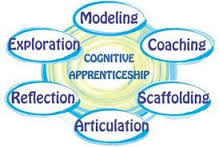Managing people – Engaging your workforce
I have started yet another MOOC (Massive Open Online Course)! I haven’t blogged for a while but this course, Managing People – Engaging your Workforce, by the University of Reading seems to lend itself to, and encourages, reflection.
I hadn’t expected the opening sessions of the course to be dominated with themes on adult learning but on reflection it is obvious. Not only am I an adult learner but a key function of a manger is to be a teacher and a learner. As managers we cannot always reward our staff in the obvious ways which we would like, pay rises, nicer offices and bonuses. However, the importance of learning and training should not be underestimated. Over the years of being a manager and an employee I have loved learning and feel it is a sign of appreciation and confidence in me when time and money is taken to teach me something new. Whether that be through external training or informal in-house learning, teaching staff is a sign that you value them. You are investing in them and ultimately, the organisation.
One of things we have been asked to reflect on is;
Managers often have to teach their staff. With this in mind consider:
- Can you think of possible challenges that could arise?
- How can you use the material considered thus far to help you overcome these challenges?
Challenges? There are many! Staff who don’t ‘appear’ to want to learn, lack of time and money, lack of confidence (manager and employee), lack of organisational support and resources.
I was interested in learning about the Cognitive Apprenticeship Model particularly the methods and sociology. The methods especially resonate with me as they are so simple and mirror what most of us do anyway. Many of us are teaching others without even realising it. The methods;
Modeling – this is where you show what needs to be done
Coaching – the learner does the task themselves with support
Scaffolding – gradually and safely remove the support
Articulation – this is where the learner articulates what they have learnt by putting it into words and then reflecting on the experience.
Reflection
Exploration – the learner puts their experience into practice and explores what else may need to be done.
The challenges previously mentioned could be overcome using the Cognitive Apprenticeship Model because it can be adapted to be as simple or as grand as you like. It could simply apply to one colleague showing another colleague how to do something. Or it could be used as a model for a more elaborate training or mentoring programme. Where challenges such as shortage of time, money and support are put in our way we can adopt the model for our needs at the time.
The sociology aspect of the model refers to learning and teaching with others, something which I talked about in my blog about how education is changing. I find the sociology of MOOCs especially useful as we are learning on-line without, or limited, contact to the instructor. When collaborating with people on-line you find a wealth of knowledge, experience and a range of opinions and perspectives. People are keen to learn and share their knowledge and this is becoming more prevalent in the ‘real’ world. At the beginning of my career training was always offered by an official trainer or at least by the person considered the most experienced. Now anyone with the right knowledge within an organisation can teach their colleagues and they in turn are, generally, happy to discuss their own experiences.
The important thing is that we keep teaching and learning as most employees value acquiring skills and experience and appreciate the investment from an employer.
We were also asked to think about what we’ve looked at this week, the nature of the course and outline our personal objectives?
My personal objective is to learn more about what makes people tick at work and how to motivate and engage employees even during periods of change and transition (if this is possible!) I am hoping this will lead me to be a better manager and maybe understand more about me as an employee and how I in turn can get the best from an organisation.

